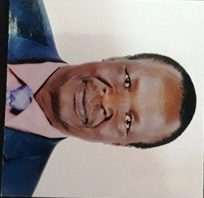The Nile: A source of energy, food and water for all
By Sam Cheptoris
River Nile is a trans-boundary resource shared by 11 countries in the Nile Basin, each with different and, sometimes, conflicting interests. This scarce resource is a source of water, energy and food, all of which are essential to human well-being, poverty reduction and sustainable development.

Projections in the Nile Basin region, however, indicate that demand for energy, food and water for domestic and industrial use will increase significantly over the next decades under the pressure of population growth and mobility, economic development, urbanisation and climate change among others. Agriculture in the Nile Basin consumes more water than any other sector and the demand for water for agriculture rises as the demand for feeding the increasing basin population also increases.
At the same time, water is needed for energy generation, particularly for hydro power, which is the preferred source of energy for various reasons; key among them the low production cost, which makes power affordable to the urban and rural poor. On the other hand, energy is needed to produce, transport, treat and distribute water; the more energy we need, the more water we use, and vice versa.
The water, energy and food security nexus reflects the fact that the three sectors are inextricably linked and that actions in one area more often than not have impacts in one or both of the others. This calls for a balancing of the act of exploitation to ensure sustainability for our future generations, for we are, but only stewards of these resources. These linkages have always been present, but as the Nile Basin population races towards 600 million, there is need for more cooperation and conscious stewardship of the Basin’s water resources for wise and sustainable use of resources.
In addition to shared challenges in the Nile Basin such as climate change, environmental degradation, rising populations, the countries also share access to mechanisms that can help them to mitigate some of these challenges. One of these is a 10-Member organisation called the Nile Basin Initiative (NBI). Members are Burundi, DR Congo, Egypt, Ethiopia, Kenya, Rwanda, South Sudan, Sudan, Tanzania and Uganda.
Established in 1999, NBI provides the only basin-wide platform to the Member States to discuss with trust and confidence and understand interests, positions and expectations of individual countries and chart ways forward to ensure the efficient and sustainable management and use of the Nile Basin’s water and related resources. Given the increasing challenges countries face today, this cooperation is paramount and needs support by everybody.
It is under this vision that, on February 22, 2017, NBI Member States will gather in Dar-es-Salaam, Tanzania to commemorate the establishment of the unprecedented Nile Basin Initiative. The day this year is dedicated to the theme ‘Our Shared Nile – Source of Energy, Food and Water for All’. It will provide an opportunity to highlight the importance of continued cooperation by the River Nile Basin States in the quest for food, water and energy security in the Nile Basin and to consolidate and build upon previous efforts.
Therefore, as water becomes scarce, and competition is growing between the energy and agricultural sectors, there is need for reliable and policy-relevant data and information to guide water allocation choices. Effective cross-sectoral consultation mechanisms across the NBI Member States are needed to ensure the development of concerted efforts to address this problem as part of an integrated, long-term strategy.
Let us all join hands and work towards sustaining Nile cooperation to ensure sustainable water resources in River Nile basin for the current and future generation!
The writer is the Uganda’s Minister for Water and Environment & Chairman Nile Council of Ministers.
